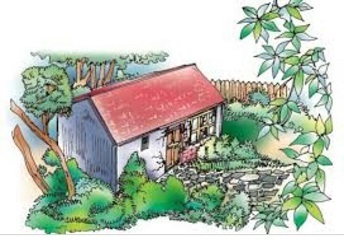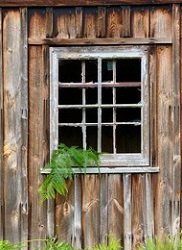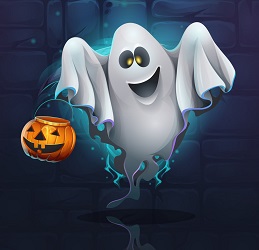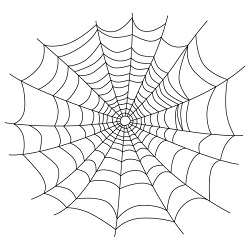THE SHED for Class 7 ENGLISH
THEME
The major theme of the poem 'The Shed' is rationality and bravery. The poem instructs us not to believe in fanciful and irrational stories about ghosts and other supernatural creatures because they are generally made up by individuals for their own amusement.
THEME
The major theme of the poem 'The Shed' is rationality and bravery. The poem instructs us not to believe in fanciful and irrational stories about ghosts and other supernatural creatures because they are generally made up by individuals for their own amusement.
EXPLANATION
'The Shed' kavita ka pramukh vishye tark shakti aur bahaduri (bravery) hain. Kavita hume ghost aur anye supernatural creatures ke baare mein kalpnik aur tarkheen kahaniyon par vishwas na karne ka nirdesh deti hain kyunki veh aam taur par vyaktiyon dwara apne manoranjan ke liye banayi jaati hain.
EXPLANATION
'द शेड' कविता का प्रमुख विषय तर्क शक्ति और बहादुरी है। कविता हमें भूत और अन्य अलौकिक प्राणियों के बारे में काल्पनिक और तर्कहीन कहानियों पर विश्वास नहीं करने का निर्देश देती है क्योंकि वे आम तौर पर व्यक्तियों द्वारा अपने मनोरंजन के लिए बनाई जाती हैं।
ABOUT THE AUTHOR

Frank Flynn was born in 1906 in Sydney and died in 2000. By profession, he was an Australian doctor, author, and Missionary priest.
ABOUT THE AUTHOR

Frank Flynn was born in 1906 in Sydney and died in 2000. By profession, he was an Australian doctor, author, and Missionary priest.
EXPLANATION
Frank Flynn ka janam 1906 mein Sydney mein hua tha aur 2000 mein unki mrityu ho gayi thi. Peshe se veh, ek Australian doctor, author aur missionary pujari the.
EXPLANATION
फ्रैंक फ्लिन का जन्म 1906 में सिडनी में हुआ था और 2000 में उनकी मृत्यु हो गई थी। पेशे से, वह एक ऑस्ट्रेलियाई डॉक्टर, लेखक और मिशनरी पुजारी थे।
STANZA 1

There’s a shed at the bottom of our garden
With a spider’s web hanging across the door,
The hinges are rusty and creak in the wind.
When I’m in bed I lie and I listen,
I’ll open that door one day.
STANZA 1

There’s a shed at the bottom of our garden
With a spider’s web hanging across the door,
The hinges are rusty and creak in the wind.
When I'm in bed I lie and I listen,
I'll open that door one day.
IMPORTANT WORDS
Spider’s web- a web made by a spider, मकड़ी का जाला
Hinges- a movable joint or mechanism on which a door, gate, or lid swings as it opens and closes or which connects linked objects, कब्जा
Rusty- covered with rust, जंग लगा हुआ
Creak- make a harsh sound when being moved or when pressure or weight is applied, चरचर करना
IMPORTANT WORDS
Spider’s web- a web made by a spider, मकड़ी का जाला
Hinges- a movable joint or mechanism on which a door, gate, or lid swings as it opens and closes or which connects linked objects, कब्जा
Rusty- covered with rust, जंग लगा हुआ
Creak- make a harsh sound when being moved or when pressure or weight is applied, चरचर करना
EXPLANATION
In panktiyon ke madhyam se kavi ka kehna hain ki unke garden mein ek shed hain aur shed ke darwaze par makdi (spider) ka jaala (web) hain. Hinges (darwaaze aur divaar ke beech ka jodh) jung (rust) se bhara hua hain kyunki uss shed mein koi aata jaata nahi hain aur hawa chalne par veh darwaaza bahut shor karta hain. Kavi ka kehna hain ki jab veh bistar par let (lay) jaate hain toh unhe uss shed ke jung lage darwaaze ki awaaz sunayi deti hain. Kavi chahte hain ki kisi din veh uss shed ka darwaaza khol sake.
EXPLANATION
इन पंक्तियों के माध्यम से कवि का कहना है कि उनके बगीचे के नीचे (छोर) पर एक शेड (shed) है और शेड के दरवाज़े पर मकड़ी का जाला है। Hinges (दरवाज़े और दीवार के बीच का जोड़) जंग से भरा हुआ है क्योंकि उस शेड में कोई आता-जाता नहीं है और हवा चलने पर वह दरवाज़ा बहुत शोर करता है। कवि का कहना है कि जब वह बिस्तर पर लेट जाते हैं तो उन्हें उस शेड के जंग लगे दरवाज़े की आवाज़ सुनाई देती है। कवि चाहते है कि किसी दिन वह उस शेड का दरवाज़ा खोल सके।
STANZA 2

There’s a dusty old window around at the side
With three cracked panes of glass,
I often think there’s someone staring at me
Each time that I pass,
I’ll peep through that window one day.
STANZA 2

There’s a dusty old window around at the side
With three cracked panes of glass,
I often think there’s someone staring at me
Each time that I pass,
I’ll peep through that window one day.
IMPORTANT WORDS
Dusty- full of dirt, धूल
Cracked- broke, टूटा हुआ
Stare- to look at, घूरना
Peep- look quickly and furtively at something, झाँकना
IMPORTANT WORDS
Dusty- full of dirt, धूल
Cracked- broke, टूटा हुआ
Stare- to look at, घूरना
Peep- look quickly and furtively at something, झाँकना
EXPLANATION
Shed ke kinare ek purani window hain jis par bahut dhool jami hui hain. Window ke teen sheeshe toote hue hain. Kavi jab bhi uss shed ke pass se guzarta hain toh unhe lagta hain jaise koi unhe ghoor (stare) raha ho. Yeh hi jaane ke liye kavi shed ke andar jhakna chahte hain.
EXPLANATION
शेड के किनारे एक पुरानी खिड़की है जिस पर बहुत धूल जमी हुई है। खिड़की के तीन शीशे टूटे हुए हैं। कवि जब भी उस शेड के पास से गुज़रते है तो उन्हें ऐसा लगता है जैसे कोई उन्हें घूर रहा हो। यह ही जानने के लिए कवि शेड के अंदर झाँकना चाहते है।
STANZA 3

My brother says there’s a ghost in the shed
Who hides under the rotten floorboards,
And if I ever dare to set foot inside
He’ll jump out and chop off my head,
But I’ll take a peek one day.
STANZA 3

My brother says there’s a ghost in the shed
Who hides under the rotten floorboards,
And if I ever dare to set foot inside
He'll jump out and chop off my head,
But I'll take a peek one day.
IMPORTANT WORDS
Ghost- spirit, भूत
Hide- conceal, छिपना
Rotten- decayed, खराब, सड़ा हुआ
Floorboards- a long plank making up part of a wooden floor, फर्श
Chop off- cut, काटना
IMPORTANT WORDS
Ghost- spirit, भूत
Hide- conceal, छिपना
Rotten- decayed, खराब, सड़ा हुआ
Floorboards- a long plank making up part of a wooden floor, फर्श
Chop off- cut, काटना
EXPLANATION
Kavi ka bhai shed ke andar ghost ki upsithti ke baare mein baat karte hain aur kavi ko chetavani (to give warning) dete hain ki agar veh shed ke andar gaye, toh ghost unka sar kaat dega. Halanki, yeh baat kavi ko darawani nahi lagti hain. Veh abhi bhi ek din shed ke andar kadam rakhna chahte hain aur khud dekhna chahte hain ki shed ke andar kya hai.
EXPLANATION
कवि का भाई शेड के अंदर भूत (ghost) की उपस्थिति के बारे में बात करते है और कवि को चेतावनी देते है कि अगर वह शेड के अंदर गए, तो भूत उनका सिर काट देगा। हालांकि, यह बात कवि को डरावनी नहीं लगती है। वह अभी भी एक दिन शेड के अंदर कदम रखना चाहते है और खुद देखना चाहते है कि शेड के अंदर क्या है।
STANZA 4

I know that there isn’t really a ghost,
My brother tells lies to keep the shed for his den;
There isn’t anyone staring or making strange noises
And the spider has been gone from his web
since I don’t know when,
I’ll go into that shed one day soon,
But not just yet...
STANZA 4

I know that there isn’t really a ghost,
My brother tells lies to keep the shed for his den;
There isn't anyone staring or making strange noises
And the spider has been gone from his web
since I don’t know when,
I’ll go into that shed one day soon,
But not just yet...
IMPORTANT WORDS
Make noises- making sounds, शोर करना
Den- home, घर
IMPORTANT WORDS
Make noises- making sounds, शोर करना
Den- home, घर
EXPLANATION
Kavi apne dar ko door karne mein saksham rahe. Veh yeh samjhne mein saksham rahe ki shed ke andar koi bhoot nahi hain. Veh samjhte hain ki vastav mein shed ke andar koi nahi hain, jo unhe ghoorta hain ya ajeeb-ajeeb si awaazein nikalta hain. Makdi ke jaale bhi ab wahan nahi the. Kavi ke bhai unse jhooth bol rahe the kyunki veh apne liye shed banaye rakhna chahte the. Kavi jaante the ki andar koi nahi hain aur yeh sirf unka dar hain. Lekin veh ek din apne dar ko door karne aur shed ke andar jaane ke liye taiyaar hain, lekin veh din abhi tak aaya nahi hain. Veh abhi bhi apna atamvishwas (self-confidence) badhane ki koshish kar rahe hain.
EXPLANATION
कवि अपने डर को दूर करने में सक्षम रहे। वह यह समझने में सक्षम रहे कि शेड के अंदर कोई भूत नहीं है। वह समझते है कि वास्तव में शेड के अंदर कोई नहीं है, जो उन्हें घूरता है या अजीबोगरीब आवाजें निकालता है। मकड़ी के जाले भी अब वहाँ नहीं थे। कवि के भाई उनसे झूठ बोल रहे थे क्योंकि वह अपने लिए शेड बनाए रखना चाहते थे। कवि जानते थे कि अंदर कोई नहीं है और यह सिर्फ उनका आंतरिक डर है। लेकिन वह एक दिन अपने डर को दूर करने और शेड के अंदर जाने के लिए तैयार है, लेकिन वह दिन अभी तक आया नहीं है। वह अभी भी अपना आत्मविश्वास बढ़ाने की कोशिश कर रहे है।
SUMMARY
SUMMARY
POETIC DEVICE
1) Personification: It is the attribution of human characteristics to animals and non-living things.
For Example: “Spider has been gone from his web”. The word “his” is used for humans but here the poet uses it for spider.
2) Alliteration: It is the repetition of initial consonant sounds in two or more neighbouring words in a phrase or sentence.
For Example: “I lie and I listen”, “someone staring”, “Who hides”.
POETIC DEVICE
1) Personification: It is the attribution of human characteristics to animals and non-living things.
For Example: “Spider has been gone from his web”. The word “his” is used for humans but here the poet uses it for spider.
2) Alliteration: It is the repetition of initial consonant sounds in two or more neighbouring words in a phrase or sentence.
For Example: “I lie and I listen”, “someone staring”, “Who hides”.
QUESTION AND ANSWERS
Q1. Who is the speaker in the poem?
ANSWER. The speaker is the poet himself.
Q2. Is she/he afraid or curious or both?
ANSWER. The speaker appears to be both curious and terrified of entering the shed. He wants to find out what is inside the shed. At the same time, he is terrified because he believes he can hear weird voices from here and that the Shed may be haunted by a ghost.
Q3. What is she/he planning to do soon?
ANSWER. He/she plans to go inside the shed someday soon.
Q4. “But not just yet…” suggests doubt, fear, hesitation, laziness, or something else. Choose the word which seems right to you. Tell others why you chose it.
ANSWER. But not just yet…” seems to suggest a lack of preparation. The speaker wants to be further certain and prepare himself for this endeavour. He has already overcome his fears, so there is no fear. However, waiting for the right time Could be a reason for postponing the act.
Q5. Is there a room in your house or a house in your neighbourhood/locality where you would rather not go alone, and never at night? If there is such a place and a story to go with it, let others hear all about it.
ANSWER. In the backyard of my house, there is a storage room. It is located at a shorter distance from the main structure. It's full of strange stuff and isn't even well lit. As a result, going to the storeroom late at night requires a lot of guts. My mother once asked me to go to the storeroom and get some items. I felt as though I could see shadows moving when I entered the storeroom. Screamed in terror, only to discover afterward that the shadows were nothing more than my imagination.
QUESTION AND ANSWERS
Q1. Who is the speaker in the poem?
ANSWER. The speaker is the poet himself.
Q2. Is she/he afraid or curious or both?
ANSWER. The speaker appears to be both curious and terrified of entering the shed. He wants to find out what is inside the shed. At the same time, he is terrified because he believes he can hear weird voices from here and that the Shed may be haunted by a ghost.
Q3. What is she/he planning to do soon?
ANSWER. He/she plans to go inside the shed someday soon.
Q4. “But not just yet…” suggests doubt, fear, hesitation, laziness, or something else. Choose the word which seems right to you. Tell others why you chose it.
ANSWER. But not just yet…” seems to suggest a lack of preparation. The speaker wants to be further certain and prepare himself for this endeavour. He has already overcome his fears, so there is no fear. However, waiting for the right time Could be a reason for postponing the act.
Q5. Is there a room in your house or a house in your neighbourhood/locality where you would rather not go alone, and never at night? If there is such a place and a story to go with it, let others hear all about it.
ANSWER. In the backyard of my house, there is a storage room. It is located at a shorter distance from the main structure. It's full of strange stuff and isn't even well lit. As a result, going to the storeroom late at night requires a lot of guts. My mother once asked me to go to the storeroom and get some items. I felt as though I could see shadows moving when I entered the storeroom. Screamed in terror, only to discover afterward that the shadows were nothing more than my imagination.
EXTRA QUESTIONS AND ANSWERS
Q1. What did the speaker’s brother say about the Shed?
ANSWER. Inside the shed, the speaker's brother claimed to have seen a ghost. He also told the speaker that if he entered the shed, the ghost might chop off his head. Saying so, the speaker’s brother frightened the speaker.
Q2. Comment on the speaker’s resolve to go inside the shed.
ANSWER. From our reading of the poem, it becomes amply clear that the speaker is fully determined to go inside the shed. Even when his brother threatens him, he does not give up the idea of going inside to find for himself the truth. His desire to visit only gets postponed and delayed.
Q3. What change occurs in the attitude of the speaker?
ANSWER. The speaker appears to be afraid of the shed in the first three stanzas. He recalls strange noises coming from the shed, someone suspiciously peering at him, and how he believed in ghost stories. However, the speaker's attitude appears to change dramatically in the poem's last line. He realised that all of the ghost stories he had been given were lies. As a result, his resolve to enter the shed becomes even stronger.
EXTRA QUESTIONS AND ANSWERS
Q1. What did the speaker’s brother say about the Shed?
ANSWER. Inside the shed, the speaker's brother claimed to have seen a ghost. He also told the speaker that if he entered the shed, the ghost might chop off his head. Saying so, the speaker’s brother frightened the speaker.
Q2. Comment on the speaker’s resolve to go inside the shed.
ANSWER. From our reading of the poem, it becomes amply clear that the speaker is fully determined to go inside the shed. Even when his brother threatens him, he does not give up the idea of going inside to find for himself the truth. His desire to visit only gets postponed and delayed.
Q3. What change occurs in the attitude of the speaker?
ANSWER. The speaker appears to be afraid of the shed in the first three stanzas. He recalls strange noises coming from the shed, someone suspiciously peering at him, and how he believed in ghost stories. However, the speaker's attitude appears to change dramatically in the poem's last line. He realised that all of the ghost stories he had been given were lies. As a result, his resolve to enter the shed becomes even stronger.
PREVIOUS YEAR QUESTION AND ANSWERS
Q1. How was the door of the shed?
ANSWER. The spider’s web is hanging on the door. The hinges joints of the door are very rusty whenever the wind blows, this makes a creaking sound. The poet wished to open the door and step inside the shed one day to look around everywhere as he was lying in the bed.
Q2. How was the shed according to his brother?
ANSWER. The poet's brother said that there was a ghost inside the shed. The ghost himself was hidden under the rotten floorboards. If the poet opens the shed someday, the ghost would jump out and chop off his head. The poet still was very curious to step inside the shed one day.
Q3. What happened to the window of the shed?
ANSWER. On one side of the shed, the window is covered in dust. The window panes' glass is shattered. Through the window, the poet frequently feels as if someone is watching him. When he passes by that way, he wishes to peek inside through the window.
PREVIOUS YEAR QUESTION AND ANSWERS
Q1. How was the door of the shed?
ANSWER. The spider’s web is hanging on the door. The hinges joints of the door are very rusty whenever the wind blows, this makes a creaking sound. The poet wished to open the door and step inside the shed one day to look around everywhere as he was lying in the bed.
Q2. How was the shed according to his brother?
ANSWER. The poet's brother said that there was a ghost inside the shed. The ghost himself was hidden under the rotten floorboards. If the poet opens the shed someday, the ghost would jump out and chop off his head. The poet still was very curious to step inside the shed one day.
Q3. What happened to the window of the shed?
ANSWER. On one side of the shed, the window is covered in dust. The window panes' glass is shattered. Through the window, the poet frequently feels as if someone is watching him. When he passes by that way, he wishes to peek inside through the window.
GLOSSARY
Spider’s web- a web made by a spider, मकड़ी का जाला
Hinges- a movable joint or mechanism on which a door, gate, or lid swings as it opens and closes or which connects linked objects, कब्जा
Rusty- covered with rust, जंग लगा हुआ
Creak- make a harsh sound when being moved or when pressure or weight is applied, चरचर करना
Dusty- full of dirt, धूल
Cracked- broke, टूटा हुआ
Stare- to look at, घूरना
Peep- look quickly and furtively at something, झाँकना
Ghost- spirit, भूत
Hide- conceal, छिपना
Rotten- decayed, खराब, सड़ा हुआ
Floorboards- a long plank making up part of a wooden floor, फर्श
Chop off- cut, काटना
Make noises- making sounds, शोर करना
Den- home, घर
GLOSSARY
Spider’s web- a web made by a spider, मकड़ी का जाला
Hinges- a movable joint or mechanism on which a door, gate, or lid swings as it opens and closes or which connects linked objects, कब्जा
Rusty- covered with rust, जंग लगा हुआ
Creak- make a harsh sound when being moved or when pressure or weight is applied, चरचर करना
Dusty- full of dirt, धूल
Cracked- broke, टूटा हुआ
Stare- to look at, घूरना
Peep- look quickly and furtively at something, झाँकना
Ghost- spirit, भूत
Hide- conceal, छिपना
Rotten- decayed, खराब, सड़ा हुआ
Floorboards- a long plank making up part of a wooden floor, फर्श
Chop off- cut, काटना
Make noises- making sounds, शोर करना
Den- home, घर